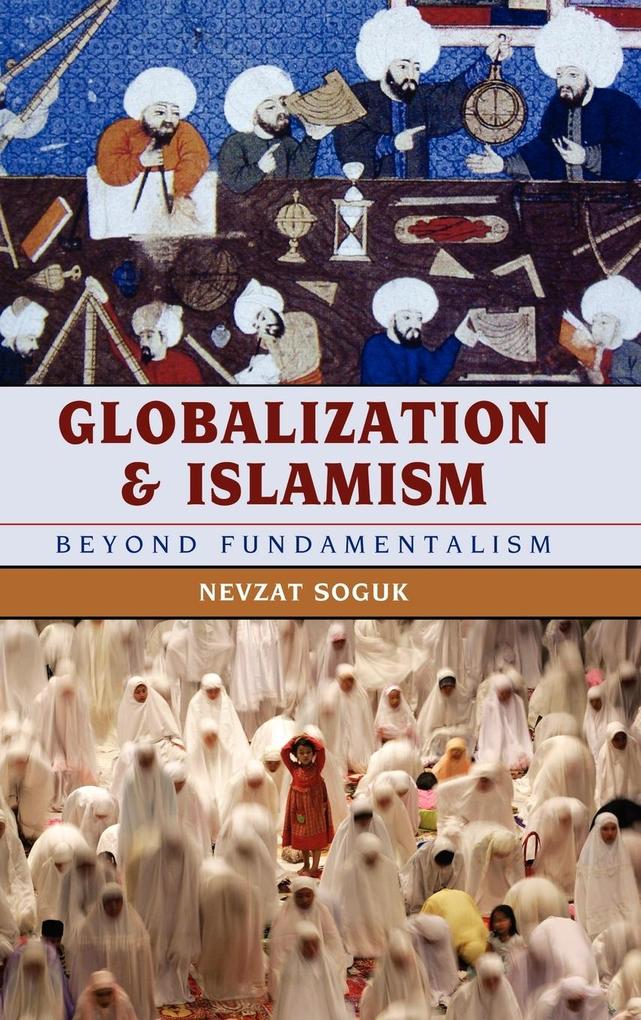
Zustellung: Sa, 24.05. - Mi, 28.05.
Versand in 1-2 Wochen
VersandkostenfreiBestellen & in Filiale abholen:
This book explores non-Arab Islamic orientations, convincingly showing that Islam as a historical force has been characteristically more tolerant, pluralistic, and flexible than contemporary Islamist movements suggest. Nevzat Soguk argues that the current Western focus on Wahabi fundamentalism has obscured past and present cosmopolitan Islamic traditions around the world. He highlights the often-overlooked forms of Islam in Turkey and in Indonesia, which holds the world's largest population of Muslims. By focusing on these two countries, he fills a significant void on the diverse role Islam is poised to play in shaping regional and global political futures. Original, timely, and humane, this book will be essential reading for all those concerned about repairing Western-Islamic relations.
Inhaltsverzeichnis
Introduction: Islam, Islamism, and Globalization
Chapter 1: Islamic Globalism Unveiled
Chapter 2: Histories Untold: The Irresistible Charm of Islamic Cosmopolitanism
Chapter 3: Islamic Intellectual Legacies: Modern Amnesia and Political Philosophy
Chapter 4: Crossroads of Global Islam and Islamism in Turkey
Chapter 5: Archipelagos of Islam in Indonesia
Chapter 6: Radical Vanishing: Islam into Global Commonspaces
Bibliography
Chapter 1: Islamic Globalism Unveiled
Chapter 2: Histories Untold: The Irresistible Charm of Islamic Cosmopolitanism
Chapter 3: Islamic Intellectual Legacies: Modern Amnesia and Political Philosophy
Chapter 4: Crossroads of Global Islam and Islamism in Turkey
Chapter 5: Archipelagos of Islam in Indonesia
Chapter 6: Radical Vanishing: Islam into Global Commonspaces
Bibliography
Mehr aus dieser Reihe
Produktdetails
Erscheinungsdatum
16. Oktober 2010
Sprache
englisch
Seitenanzahl
246
Reihe
Globalization
Autor/Autorin
Nevzat Soguk
Verlag/Hersteller
Produktart
gebunden
Gewicht
555 g
Größe (L/B/H)
235/157/19 mm
ISBN
9780742557505
Entdecken Sie mehr
Pressestimmen
Nevzat Soguk brilliantly subverts the conventional 'Jihad vs. McWorld' discussion of Islam and globalization by unveiling both the intrinsic modernity of Muslimness and the Muslimness of modernity. An erudite, highly readable, and thoroughly human account of Islamic cosmopolitanism. -- Peter Mandaville, George Mason University and author of Global Political Islam Globalization and Islamism is a gem of a book. Elegantly written, it effectively tears down essentialist accounts of the so-called phenomenon of 'political Islam.' -- Mustapha Kamal Pasha, University of Aberdeen This book provides the depth and analysis that has been hard to find until now-great text! -- Daniel Kirk, Macon State College An excellent broad approach that spells out individual difference in a comprehendible framework. -- John D. Stempel, University of Kentucky In this ambitious book, Soguk (Univ. of Manoa, Hawaii) aims to reveal multiple understandings of Islam from history to present. He is critical of two groups of actors, the Western Orientalists and Wahhabis, for their misrepresentations of Islam. Soguk regards Islamic tradition as much richer than these actors present. The book focuses on two sets of cases to stress some arguably understudied aspects of Islamic thought and Muslim practices. The historical cases include the medieval Islamic philosophers (mutazila), who influenced both Muslim and Christian lands with their rationalist philosophy. The contemporary set of cases is Turkey and Indonesia, which reflect diverse Muslim thoughts and activism in both politics and civil society... This book is good to provoke thoughts on a number of important questions, given its consistent perspective and interesting cases. Summing Up: Recommended. CHOICE Nevzat Soguk provides an interesting reading of the relationship and tension between Islam as a religion and Islamism as an ideology...The book is well written, clear, and includes useful boxes that help the reader to navigate within a complex and very condensed history...Overall the book is interesting, provides food for thought and is particularly useful for undergraduate courses on Islam, whether from a historical, sociological or political approach. MESA Bulletin
Bewertungen
0 Bewertungen
Es wurden noch keine Bewertungen abgegeben. Schreiben Sie die erste Bewertung zu "Globalization and Islamism" und helfen Sie damit anderen bei der Kaufentscheidung.



























